Smoke detectors are essential safety devices in our homes, alerting us to the presence of smoke and potential fires. However, they can sometimes be a source of frustration when one starts beeping intermittently. Understanding which detector is causing the noise can be challenging, especially in a home with multiple units installed. Identifying the beeping smoke detector quickly is crucial
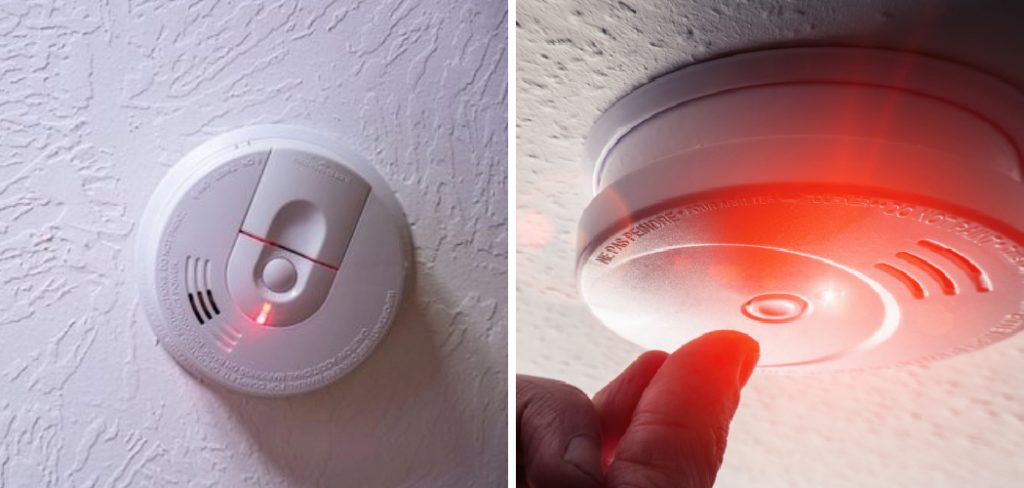
to address the issue, whether it’s a low battery, needed maintenance, or a more serious problem. This guide will help you with how to know which smoke detector is beeping.
Importance of Smoke Detectors in Home Safety
Smoke detectors play a pivotal role in ensuring home safety by providing early warnings of potential fires. These devices are often the first line of defense against fire hazards, allowing occupants to respond promptly and evacuate safely if necessary. By detecting smoke particles in the air, smoke detectors trigger alarm systems that can alert residents to the presence of a fire, often before it becomes
life-threatening. This early detection is vital, as it can mean the difference between a manageable incident and a devastating catastrophe. Moreover, smoke detectors can also alert homeowners to other issues, such as faulty appliances, that could lead to fires if not addressed. Ensuring that smoke detectors are properly installed and maintained is a crucial step in protecting both lives and property.
Common Issue of Beeping
A frequently encountered issue with smoke detectors is the persistent beeping sound, which can be both annoying and concerning. This beeping is typically an indicator of a problem that needs immediate attention. One common cause of beeping smoke detectors is a low or nearly depleted battery. Smoke detectors usually emit a consistent chirp when their battery is running low, signaling the
need for replacement. Dust accumulation inside the unit can also cause malfunctioning, triggering false alarms. Moreover, some models of smoke detectors could beep due to age or expiry, as the sensors might have a limited lifespan and may need replacing after a certain period. It is crucial to regularly check and maintain smoke detectors, ensuring they are free from obstructions and function correctly, to safeguard against these issues.
10 Methods How to Know Which Smoke Detector Is Beeping
1. Listen for the Sound Pattern
The first step in identifying which smoke detector is beeping is to listen closely to the sound pattern of the alarm. Smoke detectors emit different sounds depending on the issue they are signaling. A continuous alarm typically indicates smoke or fire, while intermittent chirping suggests a low battery or malfunction. Many modern detectors also have distinct beeping patterns for various alerts. By paying
attention to the frequency and type of sound, you can narrow down which detector is causing the alert. Once you’ve identified the sound pattern, move toward the nearest detector and observe if the sound becomes louder as you approach it.
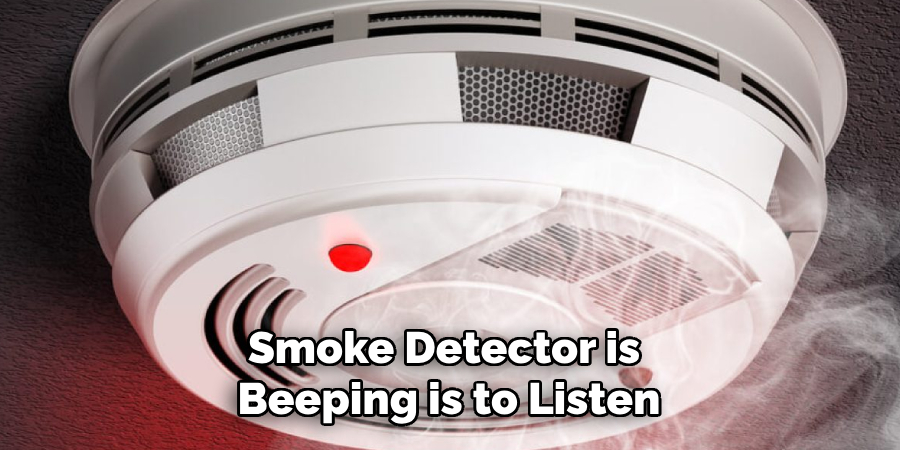
2. Visually Inspect Each Smoke Detector
Once you’ve listened for the sound pattern, visually inspecting each smoke detector can help pinpoint the source of the beeping. Many smoke detectors have LED lights that flash or change color in conjunction with their alarms. For example, some models might flash a red light when they detect smoke or a yellow light when the battery is low. Start from the detector closest to the sound and visually
check each one to see if any indicators are lit or flashing. This method not only helps in locating the beeping detector but also provides valuable information regarding its status.
3. Perform a Manual Test
If the sound is persistent and you are unable to determine the source through listening and visual inspection, performing a manual test can be an effective method to identify the beeping detector. Most smoke detectors have a test button that you can press to check if they are functioning correctly. When you press the test button, the detector should emit a loud alarm sound. Note which unit
activates when you press the test button; the one that beeps in response is likely the one signaling a problem. However, ensure that you only test each unit in a methodical manner to avoid confusion.
4. Check for Battery Issues
Beeping from smoke detectors can often indicate a low battery, particularly if the sound is intermittent. If you suspect that a detector is beeping due to a battery issue, carefully check each unit for its battery status. Most detectors will have a battery compartment that can be easily accessed. Open the compartment and look at the battery condition; if it appears corroded or weak, replace it with a fresh
one. If you’ve replaced batteries in one or more detectors and the beeping continues, note which detectors still beep after the battery change, as this will help you identify the faulty unit.
5. Examine the Wiring and Connections
For hardwired smoke detectors, a beeping sound could indicate a wiring issue. Inspect the connections for any signs of damage or loose wires. A loose connection can cause intermittent alarms or chirps. To do this, carefully remove the smoke detector from its mounting bracket and check the wiring connections. Ensure that the wires are secure and not frayed. If you identify any loose
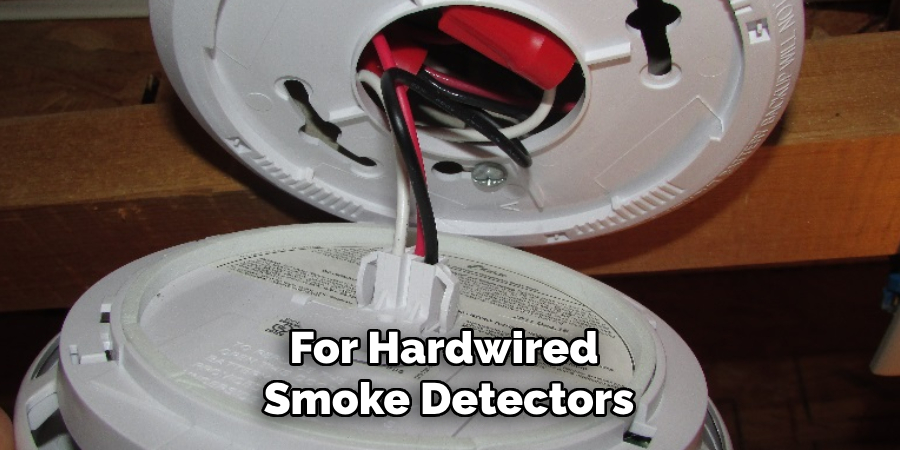
connections or signs of damage, it may be time to consult a professional electrician for repairs or replacements. By ensuring that the wiring is intact, you can eliminate any potential false alarms.
6. Use a Smoke Detector App
Some modern smoke detectors come equipped with smart technology, allowing you to connect them to your smartphone via an app. These apps often provide real-time notifications and alerts regarding the status of each smoke detector in your home. If you have a smart smoke detector, check the corresponding app to see which unit is beeping. The app may display alerts such as low battery,
maintenance needs, or if the unit has detected smoke. This method is particularly useful in larger homes where multiple detectors are installed, making it easier to identify the beeping source quickly.
7. Check the Maintenance History
Understanding the maintenance history of your smoke detectors can also help identify which unit might be causing the beeping. If you have not replaced the batteries or serviced the detectors in a while, it may be time for maintenance. Review any notes you may have kept regarding the last time you changed batteries or performed tests on each unit. If one detector has not been serviced
recently while others have, that unit may be more likely to beep due to low battery or age. Regular maintenance is key to ensuring the reliability of smoke detectors, so always keep track of when you last serviced each unit.
8. Consider Environmental Factors
Sometimes, environmental factors can contribute to false alarms or beeping sounds. High humidity, steam from a shower, or smoke from cooking can trigger smoke detectors, leading them to beep or alarm unnecessarily. If you suspect that environmental factors might be causing the beeping, consider which area of your home the sound is coming from. Move to that location and investigate. If the
sound stops when you open a window or turn on a fan, the beeping may have been triggered by the environment rather than a malfunction in the detector itself.
9. Review the Manufacturer’s Instructions
Familiarizing yourself with the manufacturer’s instructions for your smoke detectors can provide valuable insights into troubleshooting beeping issues. Each brand and model may have specific codes or indicators for different types of alerts. If you have the manual on hand or can access it online, review the section regarding beeping sounds. Understanding the meaning behind various beeping
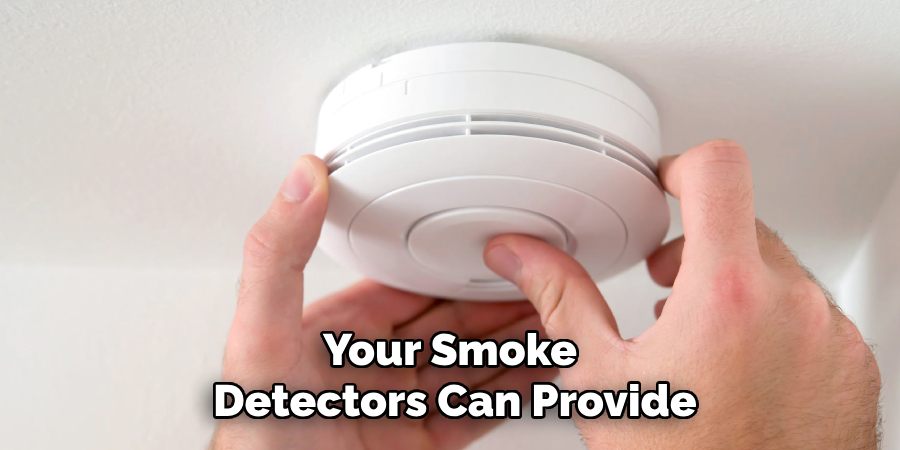
patterns can help you determine the problem with each detector more accurately. Additionally, many manuals include troubleshooting guides, which can provide step-by-step instructions for resolving common issues.
10. Consult a Professional
If all else fails and you are still unable to identify which smoke detector is beeping, consulting a professional is the safest option. Fire safety technicians or electricians are trained to assess smoke detector systems and can provide assistance in identifying issues. They can perform comprehensive inspections of your smoke detectors, ensuring they are functioning correctly and are installed
safely. This approach not only helps pinpoint the beeping detector but also ensures that your entire smoke detection system is operating at optimal levels, providing peace of mind for you and your family.
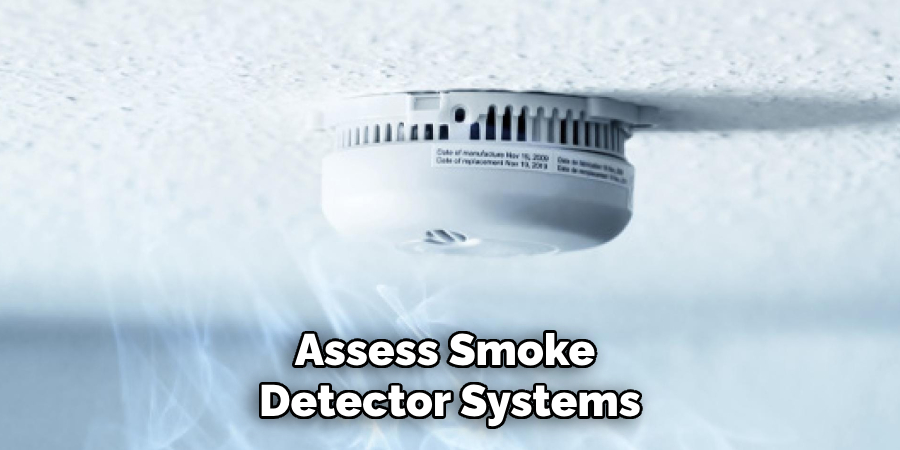
Conclusion
Addressing a beeping sound from smoke detectors is crucial for maintaining a safe home environment. By systematically troubleshooting each potential issue, from checking battery levels to considering environmental factors, you can effectively identify and resolve the cause of the beep. Consistent maintenance and familiarity with the manufacturer’s instructions further enhance the reliability
of your smoke detection system. Should challenges persist, consulting a professional can provide an expert evaluation and ensure the optimal functioning of your detectors. Ultimately, these measures not only alleviate the immediate nuisance of a beeping detector but also uphold a reliable and effective fire safety system that safeguards your home and family.
About
Safety Fic is a distinguished figure in the world of Diy design, with a decade of expertise creating innovative and sustainable Diy solutions. His professional focus lies in merging traditional craftsmanship with modern manufacturing techniques, fostering designs that are both practical and environmentally conscious. As the author of diy, Safety Fic delves into the art and science of Safety Fic-making, inspiring artisans and industry professionals alike.
Education RMIT University
(Melbourne, Australia) Associate Degree in Design (Safety Fic) Focus on sustainable design, industry-driven projects, and practical craftsmanship. Gained hands-on experience with traditional and digital manufacturing tools, such as CAD and CNC software.
Nottingham Trent University
(United Kingdom) Bachelor’s in diyfastly.com and Product Design (Honors) Specialized in product design with a focus on blending creativity with production techniques. Participated in industry projects, working with companies like John Lewis and Vitsoe to gain real-world insights.
Publications and Impact
In diy, Safety Fic his insights on indoor design processes, materials, and strategies for efficient production. His writing bridges the gap between artisan knowledge and modern industry needs, making it a must-read for both budding designers and seasoned professionals.
